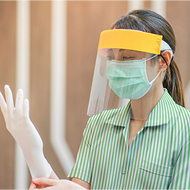OSCE examinations to resume at Central Qualifications

"We are pleased to announce that we have been able to create a safe and secure examination centre in Suffolk" - Jacqui Garrett CQ director.
Awarding organisation Central Qualifications has announced that it is preparing to safely resume Objective Structured Clinical Examinations (OSCEs) for veterinary nurses from the middle of July.
Owing to the coronavirus pandemic, and like all veterinary nurse educators, CQ had to stop running examinations in March.
In a press release, the Organisation said that it has since ‘invested heavily’ in making its Suffolk examination centre ‘as COVID-19 secure as possible’ by carrying out a full risk assessment and changing the layout of its environment.
The Ofqual-approved body added that it has already been in touch with centres whose candidates had an OSCE cancelled in March, giving them first refusal on the first OSCE taking place in Mid-July.
“We are pleased to announce that we have been able to create a safe and secure environment at our examination centre in Suffolk which takes into account social distancing and the health and welfare of candidates, examiners and the quality assurance team,” commented CQ director, Jacqui Garrett.
“We have looked into the aspect of providing OSCEs in a secure way that minimises contact and ensures that social distancing advice is adhered to. We have refreshed our risk assessment for the OSCE in light of recent government advice, identifying protective measures and ensuring that all health and safety compliance checks are undertaken before the first OSCE session.”
She added: “We are delighted to be offering the first OSCEs in the current climate and to be giving our student veterinary nurses the chance to complete the final steps in their path towards qualification.”



 The RCVS has announced a new version of its 1CPD mobile app, with enhanced features for veterinary surgeons and veterinary nurses to record their continuing professional development.
The RCVS has announced a new version of its 1CPD mobile app, with enhanced features for veterinary surgeons and veterinary nurses to record their continuing professional development.